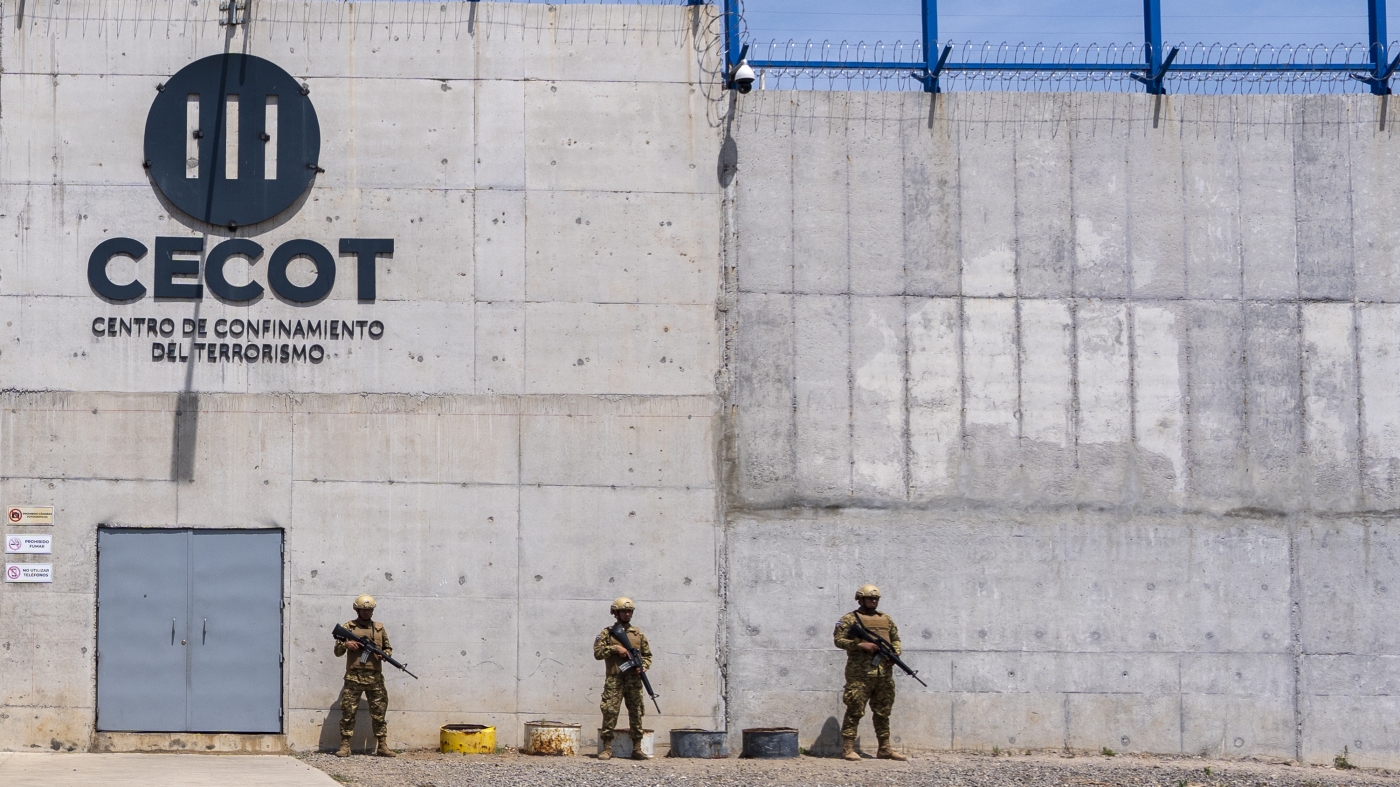The deportation of migrants from the United States to El Salvador, particularly to the notorious CECOT prison, has become a contentious issue that underscores the complexities of international migration policies and human rights. The recent acknowledgment by the Salvadoran government to United Nations investigators that the U.S. government, specifically during the Trump administration, retains some control over these individuals, contradicts previous claims of relinquished authority. This revelation raises critical questions about sovereignty, human rights, and the extraterritorial reach of U.S. policies.
The Deportation Pipeline: From US Soil to Salvadoran Cells
Between March and April 2025, over 280 migrants, primarily of Venezuelan origin, were deported to El Salvador and incarcerated in the CECOT prison. These deportations were carried out under the Alien Enemies Act, a controversial legal instrument that allows for the detention and deportation of individuals deemed a threat to national security. The U.S. government alleged that many of these migrants had affiliations with criminal gangs, a claim that remains largely unsubstantiated and has been met with skepticism. The deportees now face indefinite detention, limited access to legal counsel, and restricted contact with their families, painting a grim picture of their legal status and human rights.
The CECOT prison, where these migrants are held, is a megaprison known for its harsh conditions and lack of due process. It has become a symbol of President Nayib Bukele’s tough-on-crime approach, which has been praised for reducing gang violence but criticized for its disregard for human rights. The presence of U.S.-deported migrants in CECOT raises questions about the U.S. government’s awareness of these conditions and its potential complicity in the mistreatment of these individuals. The lack of transparency surrounding CECOT further exacerbates these concerns, making it difficult to independently verify the well-being of the detainees.
Acknowledgment of Control: A Crack in the Façade
The revelation that the U.S. government maintains control over these migrants comes from an unexpected source: the Salvadoran government itself. In communications with United Nations investigators, Salvadoran officials admitted that the Trump administration continues to influence the fate of these detainees. This acknowledgment directly contradicts previous statements from both the U.S. and El Salvador, which suggested that the deportees were solely under Salvadoran jurisdiction upon arrival. The exact nature of this “control” remains somewhat ambiguous, but it implies a level of influence over the migrants’ detention, treatment, and potential release.
This admission undermines the narrative of relinquished responsibility and raises questions about the true nature of the agreement between the two countries. It also highlights the complexities and opaqueness of the situation, which requires greater transparency, independent oversight, and a willingness from both governments to address the concerns raised by human rights organizations and international bodies.
The Ghosts of the Trump Administration: Lingering Influence
While the deportations occurred under the Trump administration, the implications of this continued control extend beyond a single political era. The Biden administration now faces the ethical and legal challenge of addressing the situation inherited from its predecessor. The question of whether the current administration is complicit in maintaining this control, and to what extent it can or should intervene, is a subject of intense debate. This situation highlights the enduring impact of past policies and the difficulties in reversing course, particularly when dealing with complex international agreements and sensitive diplomatic relations.
The legal status of the deported migrants is shrouded in uncertainty. The Alien Enemies Act, under which they were deported, provides limited avenues for appeal or legal recourse. Moreover, the fact that they are detained in a foreign country, under conditions that may not meet international human rights standards, further complicates their legal situation. The lack of due process and the limited access to legal representation raise serious concerns about the fairness and legality of their detention. Some legal scholars argue that these deportations violate international law, specifically the principle of non-refoulement, which prohibits the return of individuals to countries where they face a risk of persecution or torture.
Echoes of International Condemnation
The deportation policy has drawn criticism from human rights organizations, international bodies, and various governments. Concerns have been raised about the potential for human rights violations, the lack of due process, and the opaque nature of the deportation process. The United Nations has been actively involved in investigating the situation, seeking clarification from both the U.S. and El Salvador regarding the legal basis for the deportations and the conditions of detention. The international condemnation underscores the importance of upholding human rights standards, even in the context of national security concerns.
The Human Cost: Faces Behind the Headlines
Beyond the legal and political ramifications, it is crucial to remember the human cost of these deportations. The migrants deported to El Salvador are not simply statistics or abstract legal cases; they are individuals with families, hopes, and dreams. Their indefinite detention, without due process or family contact, inflicts immense suffering and has a devastating impact on their lives and the lives of their loved ones. Humanizing the narrative and recognizing the individual stories behind the headlines is essential for fostering empathy and promoting a more humane approach to migration policy.
Sovereignty’s Shadow: A Moral Reckoning
The situation of migrants deported from the US to El Salvador presents a complex interplay of sovereignty, human rights, and international law. While nations have the right to control their borders and enforce their laws, these rights must be exercised in a manner that respects fundamental human rights principles. The continued control exerted by the U.S. government over these migrants, despite their deportation to a foreign country, raises profound questions about the limits of sovereignty and the ethical responsibilities of powerful nations. This case serves as a stark reminder of the need for accountability, transparency, and a commitment to upholding human rights in all aspects of migration policy. The international community must continue to scrutinize these practices and advocate for the protection of human rights, ensuring that the shadows of sovereignty do not overshadow the principles of justice and dignity.

